- 0086-571-85302990
- sales@greenskybio.com
Active components in natural grape seed extract.
2024-11-28

Introduction
Grape Seed Extract has emerged as a highly regarded natural product due to its numerous health - promoting properties. It is obtained from the seeds of grapes, which are often a by - product of the winemaking industry. However, these seeds are far from being waste as they contain a wealth of active components that have attracted significant scientific attention in recent years.
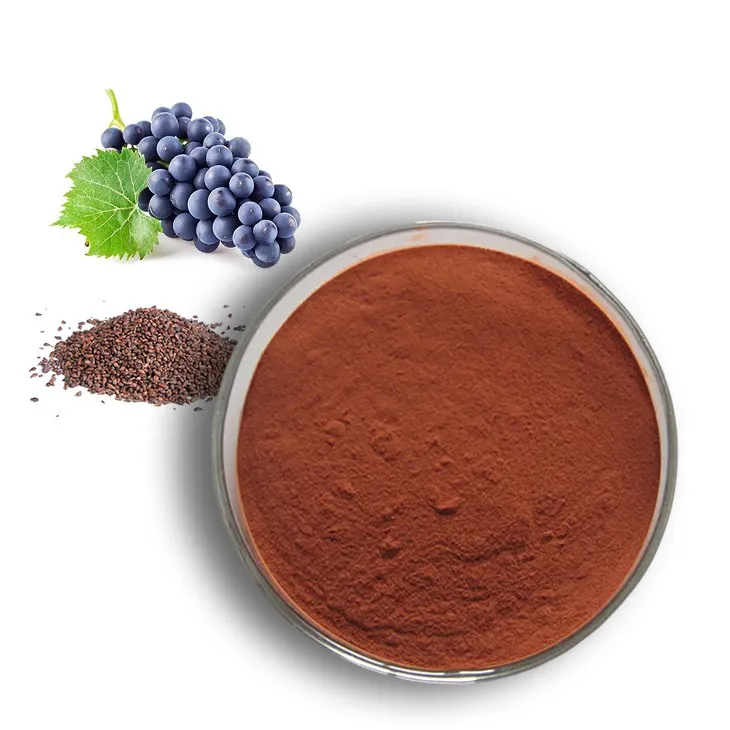
Proanthocyanidins: Powerful Antioxidants
Proanthocyanidins are among the most important active components in Grape Seed Extract. They are oligomers or polymers of flavan - 3 - ol units and are known for their remarkable antioxidant capabilities.
Free Radical Scavenging
One of the primary functions of proanthocyanidins is to scavenge free radicals in the body. Free radicals are highly reactive molecules that can cause damage to cells, proteins, and DNA. In normal physiological processes, the body generates free radicals, but excessive production due to factors such as environmental pollutants, smoking, and poor diet can lead to a state of oxidative stress.
Proanthocyanidins act as antioxidants by donating electrons to free radicals, thereby neutralizing them. This process helps to protect cells from oxidative damage, which is associated with the development of many chronic diseases.
Cardiovascular Health Protection
Oxidative stress plays a significant role in the pathogenesis of cardiovascular diseases. By reducing oxidative stress, proanthocyanidins can contribute to the maintenance of cardiovascular health.
- They can help prevent the oxidation of low - density lipoprotein (LDL) cholesterol. Oxidized LDL is a key factor in the formation of atherosclerotic plaques in the arteries.
- Proanthocyanidins may also improve endothelial function. The endothelium is the inner lining of blood vessels, and proper endothelial function is crucial for normal blood flow and blood pressure regulation.
Anti - Aging Effects
The antioxidant properties of proanthocyanidins also contribute to their anti - aging effects. Oxidative damage is one of the main factors associated with aging, and by reducing this damage, proanthocyanidins can help maintain the integrity of cells and tissues.
They can protect skin cells from damage caused by ultraviolet (UV) radiation and environmental pollutants, which can lead to premature skin aging. In addition, proanthocyanidins may also have an impact on the aging process at the cellular level by modulating gene expression and cellular signaling pathways.
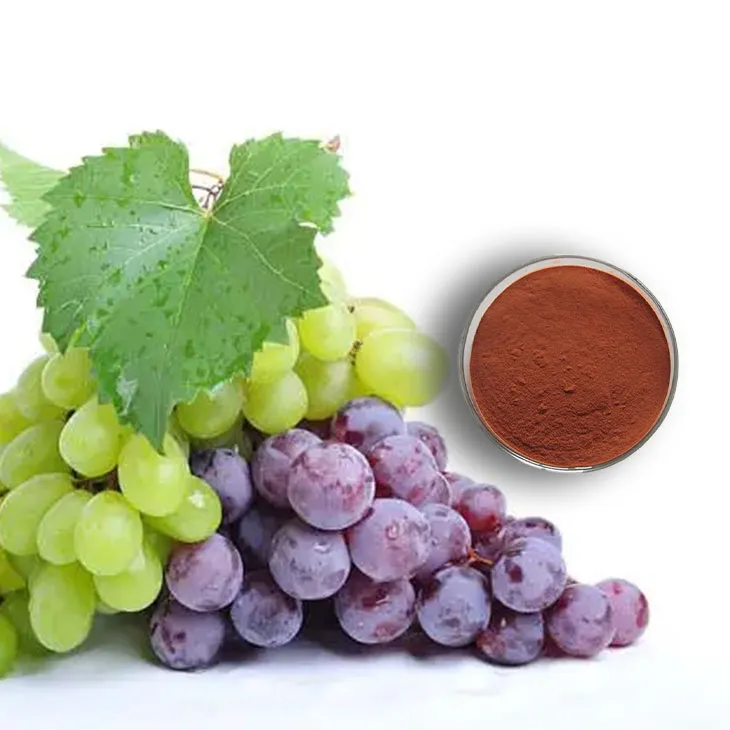
Flavonoids: Anti - Inflammatory Agents
Flavonoids are another important class of active components in Grape Seed Extract. They are a large group of polyphenolic compounds with diverse biological activities, and their anti - inflammatory properties are of particular interest.
Mechanisms of Anti - Inflammatory Action
Flavonoids can exert their anti - inflammatory effects through multiple mechanisms.
- They can inhibit the activity of enzymes such as cyclooxygenase (COX) and lipoxygenase (LOX), which are involved in the production of inflammatory mediators such as prostaglandins and leukotrienes.
- Flavonoids can also modulate the activity of immune cells, such as macrophages and neutrophils, reducing their production of pro - inflammatory cytokines.
- They can interact with cell signaling pathways involved in inflammation, such as the nuclear factor - kappa B (NF - κB) pathway, inhibiting the activation of this pathway and thereby reducing inflammation.
Applications in Inflammatory Diseases
The anti - inflammatory properties of flavonoids make them potentially useful in the treatment and prevention of various inflammatory diseases.
- Inflammatory bowel diseases (IBD), such as Crohn's disease and ulcerative colitis, are characterized by chronic inflammation in the gastrointestinal tract. Flavonoids may help reduce inflammation in the gut and improve symptoms.
- Arthritis, both rheumatoid arthritis and osteoarthritis, involves inflammation in the joints. Flavonoids could potentially be used to relieve joint pain and swelling and slow down the progression of the disease.
- Flavonoids may also play a role in reducing inflammation associated with skin diseases, such as eczema and psoriasis.
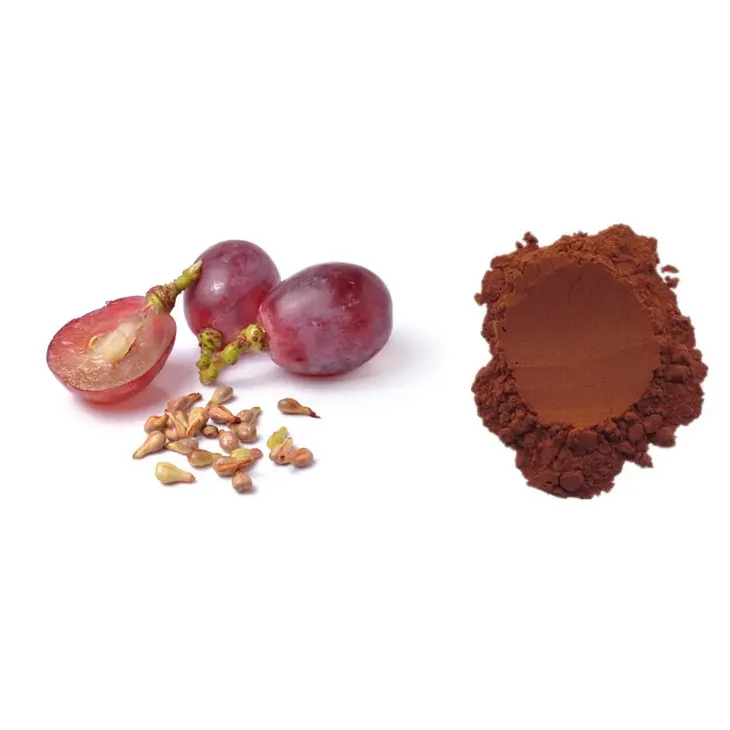
Phenolic Acids: Boosting the Immune System
Phenolic acids are yet another group of active components in grape seed extract that contribute to overall health, particularly by enhancing the function of the immune system.
Immune - Modulating Effects
Phenolic acids can influence the immune system in several ways.
- They can enhance the activity of immune cells, such as lymphocytes and natural killer (NK) cells. These cells play important roles in the body's defense against pathogens, including viruses, bacteria, and fungi.
- Phenolic acids can also regulate the production of cytokines, which are signaling molecules in the immune system. By modulating cytokine production, they can help maintain a balanced immune response, preventing excessive inflammation while still effectively fighting off infections.
Overall Health Promotion
By enhancing the immune system, phenolic acids in grape seed extract can contribute to overall health in various ways.
- They can help the body better resist infections, reducing the frequency and severity of common illnesses such as colds and flu.
- Since a well - functioning immune system is also important for preventing the development of certain cancers, phenolic acids may play a role in cancer prevention.
- They can also contribute to wound healing, as the immune system is involved in the process of tissue repair and regeneration.
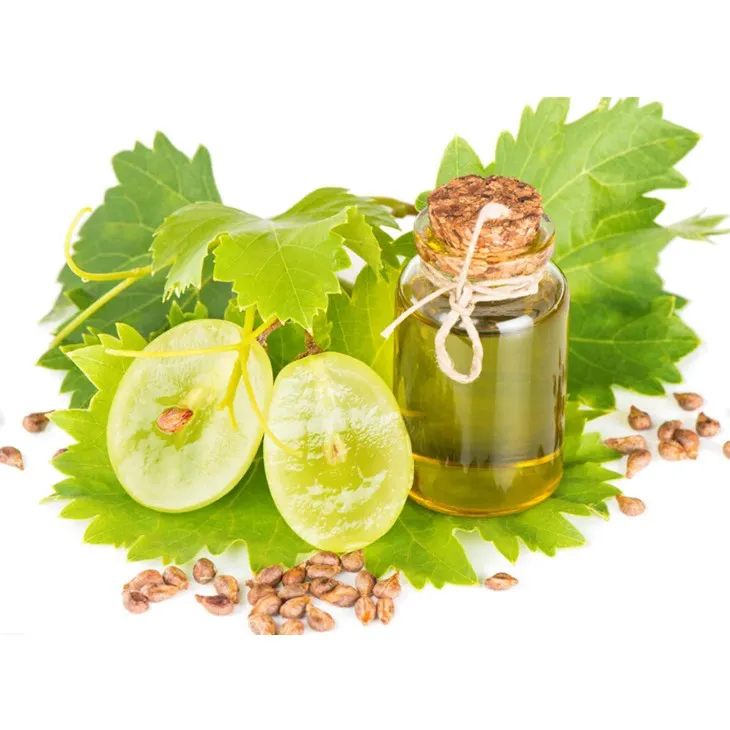
Other Active Components and Their Potential Benefits
In addition to proanthocyanidins, flavonoids, and phenolic acids, grape seed extract may also contain other active components that have potential health benefits.
Oligomeric Proanthocyanidins (OPCs)
Oligomeric Proanthocyanidins (OPCs) are a specific type of proanthocyanidins that are particularly bioavailable and have been studied for their unique health - promoting properties.
- OPCs have been shown to have strong antioxidant and anti - inflammatory effects, similar to those of proanthocyanidins in general. However, their smaller molecular size may make them more easily absorbed by the body.
- They may also have potential benefits for eye health. Some studies suggest that OPCs can protect the eyes from oxidative damage and may be beneficial in preventing age - related macular degeneration and cataracts.
Resveratrol - Related Compounds
Although resveratrol is more commonly associated with grape skins, grape seeds may also contain resveratrol - related compounds.
- Resveratrol has been studied for its potential anti - cancer, anti - aging, and cardiovascular - protective properties. The resveratrol - related compounds in grape seed extract may also possess similar properties, although more research is needed to fully understand their effects.
- These compounds may also interact with other active components in grape seed extract, potentially enhancing their overall health - promoting effects.
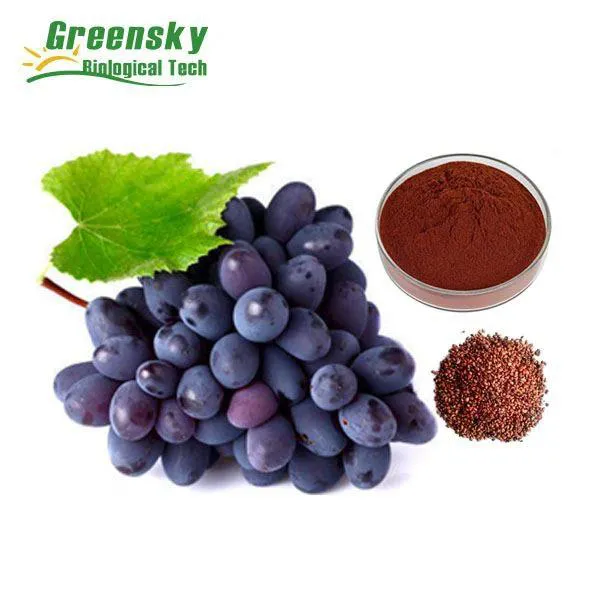
Conclusion
Natural grape seed extract is a rich source of active components, including proanthocyanidins, flavonoids, phenolic acids, oligomeric proanthocyanidins, and resveratrol - related compounds. These components have a wide range of biological activities, such as antioxidant, anti - inflammatory, and immune - enhancing properties.
The potential health benefits of grape seed extract are numerous, including protection against chronic diseases such as cardiovascular diseases, relief of inflammation in various conditions, and enhancement of the immune system. However, more research is still needed to fully understand the mechanisms of action of these active components and to optimize their use in promoting human health.
FAQ:
What are the main active components in Natural grape seed extract?
The main active components in Natural grape seed extract include proanthocyanidins, flavonoids, and phenolic acids. Proanthocyanidins are strong antioxidants. Flavonoids have anti - inflammatory properties, and phenolic acids play a role in promoting overall health, such as enhancing the immune system function.
How do proanthocyanidins in grape seed extract benefit the body?
Proanthocyanidins in grape seed extract are powerful antioxidants. They can scavenge free radicals in the body, which helps protect cells from oxidative damage. By doing so, they can reduce the risk of chronic diseases like cardiovascular diseases.
What is the role of flavonoids in natural grape seed extract?
Flavonoids in natural grape seed extract contribute to anti - inflammatory properties. They help relieve inflammation in the body, which is beneficial for overall health.
How do phenolic acids in grape seed extract promote health?
Phenolic acids in grape seed extract play a role in promoting overall health. For example, they can enhance the function of the immune system.
Are there any other benefits of natural grape seed extract?
Besides the benefits from its main active components, natural grape seed extract may also have other potential benefits. However, more research is needed. For example, it may have potential effects on skin health due to its antioxidant properties, but this requires further investigation.
Related literature
- Antioxidant Activity of Grape Seed Extract: In Vitro and In Vivo Studies"
- "The Role of Flavonoids in Grape Seed Extract for Anti - Inflammatory Effects"
- "Phenolic Acids in Grape Seed Extract and Their Impact on the Immune System"
- ▶ Hesperidin
- ▶ citrus bioflavonoids
- ▶ plant extract
- ▶ lycopene
- ▶ Diosmin
- ▶ Grape seed extract
- ▶ Sea buckthorn Juice Powder
- ▶ Beetroot powder
- ▶ Hops Extract
- ▶ Artichoke Extract
- ▶ Reishi mushroom extract
- ▶ Astaxanthin
- ▶ Green Tea Extract
- ▶ Curcumin Extract
- ▶ Horse Chestnut Extract
- ▶ Other Problems
- ▶ Boswellia Serrata Extract
- ▶ Resveratrol Extract
- ▶ Marigold Extract
- ▶ Grape Leaf Extract
- ▶ blog3
- ▶ blog4
-
The Most Highly - Praised Lavender Extract.
2024-11-28
-
Organic Goldenseal Extract Powder Suppliers.
2024-11-28
-
Standard - process pine bark extract powder.
2024-11-28
-
Nature's Bounty Almond Powder
2024-11-28
-
Organic Taurine Powder Suppliers.
2024-11-28
-
Bulk purchase of black pepper extract.
2024-11-28
-
Apricot Powder
2024-11-28
-
Dan Shen Root Extract/Salvia Root Extract
2024-11-28
-
Nettle Root Extract
2024-11-28
-
Pine bark Extract Powder
2024-11-28
-
Curcuma Longa Extract
2024-11-28
-
Epimedium extract powder
2024-11-28
-
Mulberry Extract
2024-11-28
-
Calendula Extract
2024-11-28
-
Garcinia Cambogia Extract
2024-11-28
-
Dandelion Root Extract
2024-11-28





















